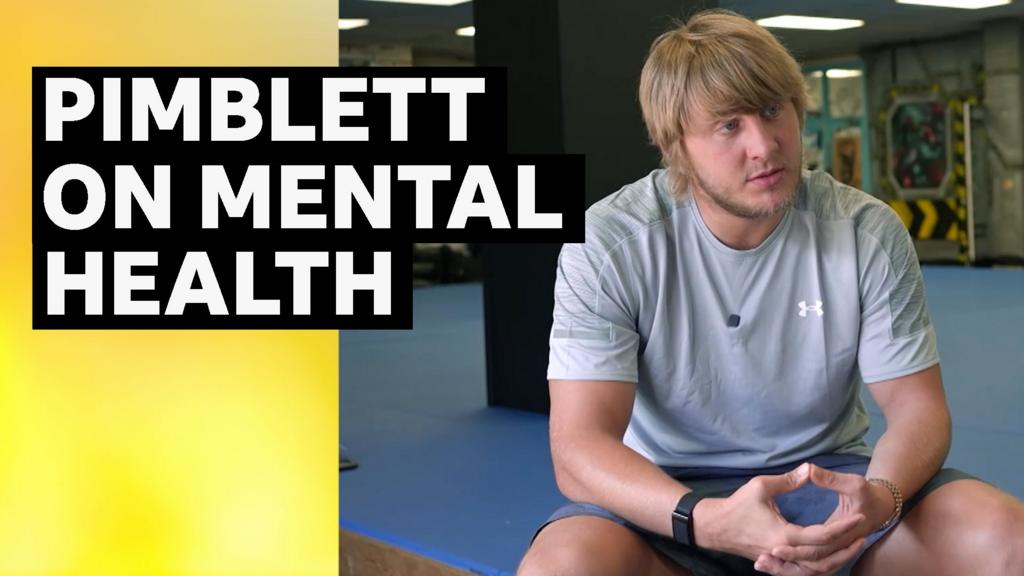Beyond the Octagon: Paddy Pimblett Opens Up About Mental Health Struggles in Powerful BBC Interview
In the world of mixed martial arts, fighters are often celebrated for their physical strength and resilience in the cage. But what happens when the battle is taking place inside their own minds? UFC lightweight star Paddy “The Baddy” Pimblett recently showed that true courage extends far beyond fight night in a deeply moving interview with BBC Sport’s Sam Harris.
The Liverpool native, known for his charismatic personality and growing popularity in the UFC, took a brave step by discussing his personal mental health struggles and the importance of his friendships during dark times.

Fighting the Invisible Opponent: Pimblett’s Mental Health Journey
In the emotional interview, Pimblett spoke candidly about navigating the psychological challenges that came with his rising fame and the pressures of competing at the highest level. What makes his story particularly powerful is how it contradicts the stereotypical “tough guy” image often associated with combat sports.
“Everyone’s fighting something you can’t see,” Pimblett explained during the interview. The fighter, who has amassed a significant following since joining the UFC, revealed how he’s dealt with periods of darkness despite his outwardly confident persona.
What stands out most about Pimblett’s disclosure is his willingness to discuss suicide – a topic that remains taboo in many circles, especially in combat sports. By addressing this difficult subject head-on, “The Baddy” has potentially opened a door for others in similar situations to seek help.
The Power of Friendship in a Fighter’s Life
Perhaps the most touching aspect of Pimblett’s interview was his emphasis on the importance of supportive friendships in his life. In a sport that celebrates individual achievement, Paddy highlighted how crucial his inner circle has been during his most challenging moments.
The Liverpudlian fighter described how his close friends have been a lifeline, providing support when the weight of his career and personal struggles became overwhelming. This perspective offers fans a rare glimpse into the support systems that keep fighters going beyond their training camps and fight preparations.
I’ve covered countless fighter interviews over the years, but rarely have I seen someone of Pimblett’s rising status speak so openly about leaning on others during vulnerable moments. It’s a refreshing counterpoint to the “lone warrior” narrative that often dominates MMA culture.
Breaking the Stigma in Combat Sports
Pimblett’s willingness to discuss mental health challenges publicly represents a significant shift in how fighters approach these issues. Historically, combat sports have maintained a culture of stoicism where psychological struggles were often viewed as weaknesses.
By speaking out, Pimblett joins a growing movement of fighters – including UFC veterans like Tyson Fury and Rose Namajunas – who have helped normalize conversations about mental health in combat sports.
The impact of such openness cannot be overstated. For every professional fighter dealing with similar issues, there are countless fans who may be inspired to seek help or support a friend in need after hearing Pimblett’s story.
| UFC Fighters Who’ve Spoken About Mental Health | Key Messages |
|---|---|
| Paddy Pimblett | Importance of supportive friendships, speaking openly about suicidal thoughts |
| Rose Namajunas | Dealing with anxiety and pressure as a champion |
| Tyson Fury | Depression and comeback journey |
| Robert Whittaker | Burnout and taking time away from the sport |
What This Means for MMA Culture
As fans, we often focus on a fighter’s physical preparation, technical skills, and fight night performance. Pimblett’s interview serves as a powerful reminder that mental wellbeing is equally important to an athlete’s career and life.
The UFC has begun acknowledging this reality in recent years, providing fighters with more resources for mental health support. Pimblett’s openness may encourage the promotion and other organizations to expand these initiatives further.
For younger fighters coming up through the ranks, seeing a popular figure like “The Baddy” discuss these challenges openly creates space for them to prioritize their own mental health without fear of being stigmatized.
Where to Find Support
Pimblett’s message comes at a critical time when many people continue to struggle with mental health challenges. If you or someone you know is dealing with similar issues, remember that help is available:
- National Suicide Prevention Lifeline: 988 or 1-800-273-8255
- Crisis Text Line: Text HOME to 741741
- Veterans Crisis Line: 1-800-273-8255 (Press 1)
The Takeaway: Fighting Spirit Redefined
Paddy Pimblett’s brave disclosure reminds us that true fighting spirit isn’t just about what happens in the octagon – it’s about facing internal battles with the same courage and determination. By sharing his story, he’s potentially helping countless others who may be suffering in silence.
As the sport of MMA continues to evolve, perhaps one of its most important developments will be this growing willingness to acknowledge that even the toughest fighters face mental health challenges – and that seeking help is a sign of strength, not weakness.
The next time you watch Pimblett walk to the octagon with his trademark confidence, remember that his greatest fight – and perhaps his most important victory – may be the one you never see on camera.
Source: BBC Sport

